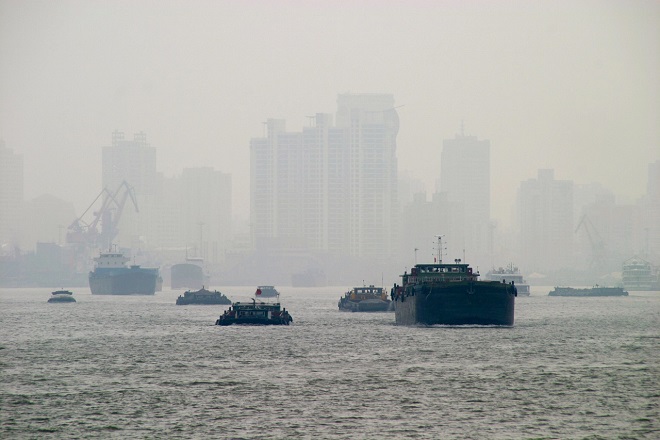The world spends an astounding US$423 billion annually to subsidize fossil fuels for consumers – oil, electricity that is generated by the burning of other fossil fuels, gas, and coal.
"This is four times the amount being called for to help poor countries tackle the climate crisis, one of the sticking points ahead of the COP26 global climate conference next week," according to new UN Development Programme (UNDP) research released today.
The amount spent directly on these subsidies could pay for COVID-19 vaccinations for every person in the world, or pay for three times the annual amount needed to eradicate global extreme poverty. When indirect costs, including costs to the environment, are factored into these subsidies, the figure rises to almost US$6 trillion, according to data published recently by the International Monetary Fund (IMF).
Instead, UNDP’s analysis highlights that these funds, paid for by taxpayers, end up deepening inequality and impeding action on climate change.
"The COVID-19 pandemic has exposed outdated aspects of the global economy. It includes the fact that the world continues to spend billions of dollars on fossil fuel subsidies, while hundreds of millions of people live in poverty and the climate crisis accelerates. Against this backdrop, we must ask ourselves: is subsidizing fossil fuels a rational use of public money?" said Achim Steiner, UNDP Administrator.
Fossil fuel subsidies are both inefficient and inequitable. Across developing countries, about half of the amount of public resources spent to support fossil fuel consumption benefits the richest 20 percent of the population, according to the IMF.
“Addressing fossil fuel subsidies is a politically charged issue, but the facts show that reform is both necessary, and when done correctly, supports the poor, creates jobs, and protects the planet,” said George Gray Molina, Lead Economist of UNDP’s Bureau for Policy and Programme Support and co-author of the research. “We hope this research will catalyze the conversation on the critical role reform can have in driving green and fair transitions in all countries.”
The report, published ahead of the upcoming G20 and COP26 meetings, is being launched in the context of a growing recognition of the need for reform of fossil fuel subsidies by economists and policymakers as well as the IMF and World Bank. The United Nations Secretary-General António Guterres has also made a strong call for reform.
To spotlight the hugely negative effects fossil fuel subsidies have on people and planet, UNDP has produced an engaging short film as part of a new campaign in which one of the world’s most well-known extinct animals, the dinosaur, gives a speech to the UN General Assembly urging world leaders to shift away from fossil fuel subsidies and “Don’t Choose Extinction.”
Led by a cast of celebrity voices from around the world — the Don’t Choose Extinction campaign aims to raise public awareness of how fossil fuel subsidies are canceling out significant progress to date towards ending climate change and are driving inequality by benefitting the rich.
The main contributor to the climate emergency is the energy sector which accounts for 73 percent of human-caused greenhouse gas emissions. Fossil fuel subsidy reforms would contribute to reducing CO2 emissions and benefit human health and well-being, and they are a first step towards correctly pricing energy – one that reflects the ‘true’ and full cost of using fossil fuels to society and the environment.
But UNDP’s analysis shows that fossil fuel subsidy reforms can also be unfair and harmful for households and society if they are poorly designed. While fossil fuel subsidies tend to be an unequalising tool - as the lion’s share of the benefits concentrate among the rich - these subsidies also represent an important portion of poor peoples’ incomes that otherwise must be paid for energy consumption. Fossil fuel subsidies’ removal thus could easily become an income- and energy-impoverishing strategy. This contributes to making fossil fuels reform difficult, and imposes a key barrier to transitioning to clean and renewable energy sources.
With that in mind, UNDP’s research advocates for a progressive and gradual response to reforms. It includes analysis of success stories gathered from several countries across regions as well offering a ‘toolkit’ for policymakers to support fossil fuel subsidy and energy pricing reforms. The toolkit allows for a phased approach that is just and equitable and includes income protection and compensation for less advantaged groups.
“When we consider how we are going to pay for the fight against climate change, fossil fuel subsidies mean that we are effectively starting at a point of minus US 423 billion dollars,” added Achim Steiner. “Reform is not easy and the transition to clean energy presents a range of difficult challenges in many countries. Indeed, each country needs to take their own path. But we also know that we must move away from these energy sources that are contributing to our planet’s decline. Ending financial support for them in a way that is fair and equitable is a critical element of that transition. The recent IPCC report, which the UN Secretary-General described as a ‘code red’ for humanity, shows that only the most ambitious climate action will limit global warming to1.5 degree Celsius. This is what science dictates is needed to avoid a climate catastrophe.”
The Don’t Choose Extinction campaign
features a collective intelligence platform, the Global Mindpool, to help
tackle the most important issues of our time. Linking insights from around the
world - on the climate emergency, the crisis in nature and inequality – the
Global Mindpool will support UNDP to better inform and equip policy makers in
government, civil society, and the private sector.
Find out more about the campaign here at www.dontchooseextinction.com

